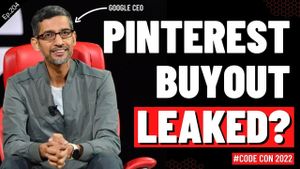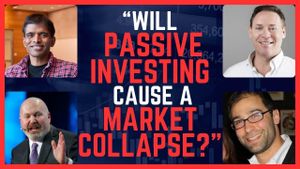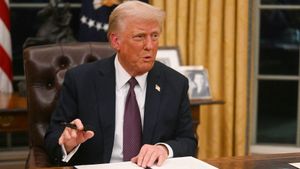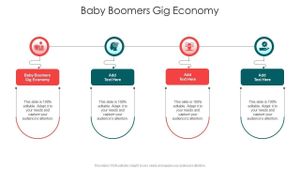Robert F. Kennedy Jr., the controversial figure recently nominated by President Donald Trump to lead the Department of Health and Human Services, faced significant pushback during his two-day Senate confirmation hearings. Held on January 29 and 30, 2025, the hearings unfolded across the Senate Committee on Finance and the Senate Committee on Health, Education, Labor and Pensions (HELP). With intense scrutiny from both sides of the aisle, Kennedy’s past public statements and policy positions were front and center in this heated debate.
During the hearings, Kennedy sought to project himself not as the anti-vaccine activist he has often been labeled, but as "pro-safety." To this end, he stated, "I am neither. I am pro-safety," attempting to distance himself from previous perceptions of his stance on vaccines.
Nonetheless, the hearings proved to be fraught with challenges for Kennedy, especially as he struggled to articulate the basic differences between Medicare and Medicaid. These government-funded health programs cover millions of Americans. Kennedy's confusion was evident when he inaccurately claimed, "Most people who are on Medicaid are not happy." He compounded this by stating, "The premiums are too high. The deductibles are too high," failing to mention the jointly-funded nature of Medicaid by federal and state sources.
Sen. Bill Cassidy (R-La.), who is considered a key Republican vote for Kennedy’s nomination, expressed reservations, saying he was "struggling" with the nomination due to Kennedy's positions on vaccines. Cassidy pressed Kennedy to clarify how he would improve care for dual-eligible individuals reliant on both Medicare and Medicaid, yet Kennedy provided vague responses. This inquiry raised eyebrows, especially as Cassidy underscored the importance of vaccines: "You need to support vaccines as secretary of HHS." Kennedy’s non-committal response to disavowing the debunked claims linking vaccines to autism did little to inspire confidence.
Senator Maggie Hassan (D-N.H.) took aim at Kennedy's recent shifts on issues. "When was it you decided to sell out the values you've had your whole life to be powered by President Trump?" she pressed, highlighting the drastic change from Kennedy’s past support for reproductive rights to his current alignment with Trump’s policies on abortion. Previously supportive of reproductive rights throughout the pregnancy, Kennedy's recent stance marks a significant departure, as he endorsed the notion of state control over abortion rights.
This dramatic pivot reflects not only Kennedy's political maneuvering but also the deepening involvement of personal and party ideologies within his candidacy. Interestingly, during one of the hearings, Kennedy reiterated his agreement with Trump on the matter, stating, "President Trump has made it clear to me... he wants me to look at safety issues." This echoes Trump's previous comments about potentially halting progress on reproductive rights, adding another layer of complexity to Kennedy’s nomination.
The hearings also spotlighted Kennedy's controversial past remarks surrounding vaccines and race. At one point, he suggested different vaccine schedules for Black and White Americans, leading Sen. Angela Alsobrooks (D-Md.) to confront him directly. "What different vaccine schedule would you say I should have received? With all due respect, this is so dangerous," she articulated, underscoring the potential public health ramifications of such statements.
The committee sessions were marked by moments of disbelief as senators questioned Kennedy's contributions to vaccine misinformation, particularly concerning measles, polio, and COVID-19. A tense exchange arose when Sen. Bernie Sanders (I-Vt.) queried the origins of merchandise featuring anti-vaccine slogans available through Kennedy’s nonprofit organization, Children’s Health Defense.
Kennedy did state adroitly, "I have no financial interest in vaccines... I'm anti-misinformation," attempting to mitigate accusations of his role as a vaccine peddler. But skepticism remains, with past behaviors and statements irrevocably linked to the wider anti-vaccine narrative. Indeed, the aftermath of his previous comments during the 2019 measles outbreak, which saw over 5,700 cases and numerous fatalities, is still fresh for many, leaving experts and politicians concerned about vaccine hesitancy.
Despite core accusations and critiques, the handling of Kennedy by Republican senators revealed varied responses. While he received lenient questioning overall, the ensuing interest focused sharply on his future agenda and funding. The Finance Committee, led by Cassidy, plans to vote next week on the nomination, casting doubt over Kennedy's confirmation as the secretary of the HHS.
With substantial barriers to clear, including full Democratic opposition, Kennedy can only afford to lose three GOP votes. The outcome remains uncertain as Cassidy, after the second hearing, noted he would take the weekend to deliberate his decision.
The distinction of leading a $1.7 trillion agency responsible for health care access, drugs, and disaster response necessitates a candidate who can build bridges and restore trust. Whether Kennedy will rise above his contentious past and embrace the responsibilities of such significant leadership hangs uncertain, with ramifications not only for his own future but also for the public health policies of the United States.



